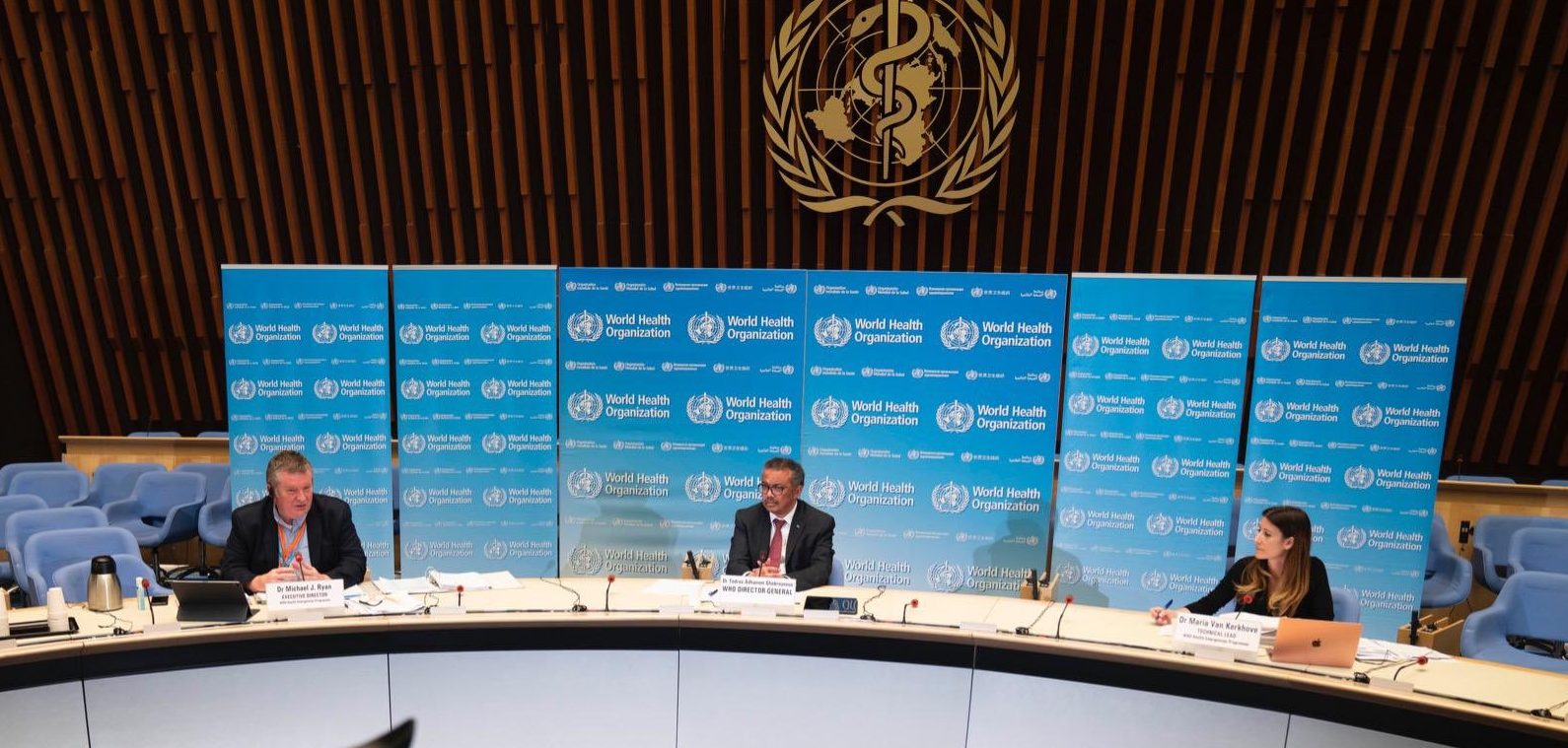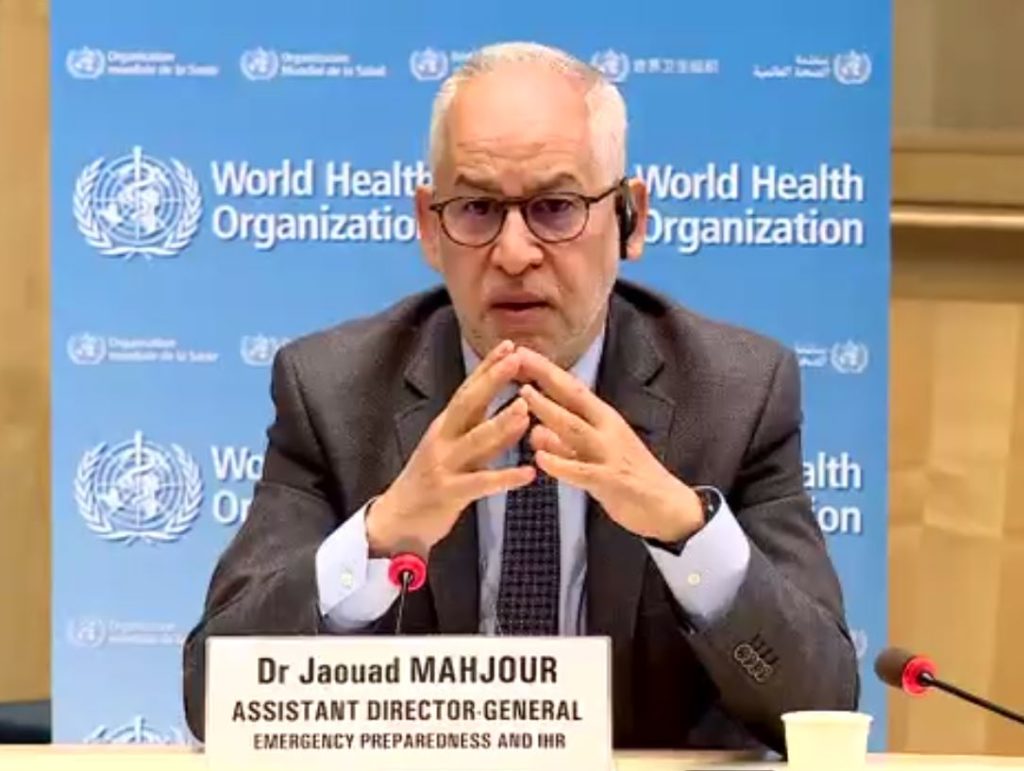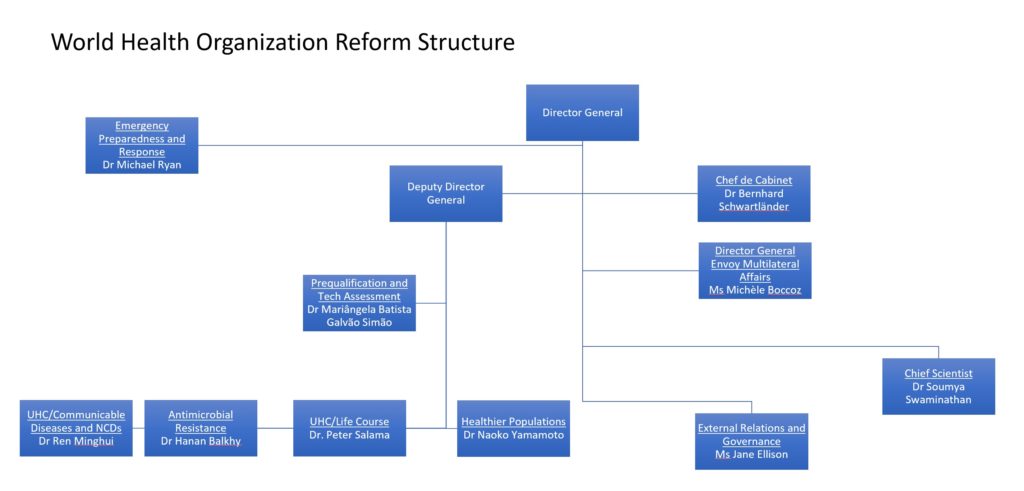
Half of the World Health Organization’s (WHO) 16-member senior leadership team at the Geneva headquarters will leave the global body at the end of November, including Chief Scientist Dr Soumya Swaminathan and Dr Mariângela Simão, Assistant Director-General for access to medicines and health products.
The announcement of the departure of the eight senior leaders was made in a short email to staff by Director-General Dr Tedros Adhanom Ghebreyusus on Tuesday, thanking the leaders for their service.
Despite the low-key internal announcement, this is the biggest single leadership change that Tedros has made since 2019, two years after he took office, when he made a set of sweeping changes as part of his “Transformation” agenda for the organization. It has been anticipated for months by Geneva insiders who say the Director-General has been itching to shake up his team since being re-elected for a second term. Additionally, there have been pressures from large donors for Tedros to streamline his senior team, which was unprecedentedly large, and some said, top-heavy.
Although Tedros said that the officials were all leaving because their appointments are coming to an end, he has obviously chosen not to renew the appointments of a number of those who are not at retirement age and were available.
Tedros said that the departing staff members had “contributed to a significant and enduring transformation of the organisation and helped steer WHO through a global pandemic that ravaged the health and well-being of the entire world and had a profound and ongoing impact on global public health”.
Thanking them, he added that they have made “a truly positive difference, and their legacy is a strengthened and more agile, equitable, and resilient WHO”.
Health Policy Watch was the first to report on Swaminathan’s departure in early October, reporting that the Indian paediatrician’s leadership style may have been too independent for Tedros.
Medicine access stalwarts

Swaminathan and Simão, who came to the WHO via UNIAIDS, have consistently championed access to COVID-19 vaccines for low and middle-income countries, often criticising wealthy countries and pharmaceutical companies for obstructing this.
Simão has spent much of her career working to expand access to medicine, particularly for those living with HIV, and she served as Director of STDs, AIDS and Hepatitis Department in Brazil’s Health Ministry between 2006 and 2010, where she led successful price negotiations with pharmaceutical companies to lower the price of HIV medication
Dr Agnès Buzyn, the WHO Director-General’s Envoy for Multilateral Affairs, was recently appointed executive director of the WHO Academy in Lyon, and the former French health minister remains on the leadership team in her new role. Former French Global Health Ambassador Stéphanie Seydoux has already been announced as her successor.
Who’s out – and who’s still in?

Jane Ellison, executive director for external relations and governance and former UK health minister, is also leaving, as is Dr Jaouard Mahjour, Assistant Director-General for emergency preparedness and international health regulations. Mahjour held various positions in the WHO’s Eastern Mediterranean Regional Office.
As previously reported, Dr Ren Minghui, Assistant Director-General for universal health coverage (UHC), and communicable and non-communicable diseases, also joins the exodus. Chinese national Minghui was previously director-general for international cooperation at the National Health and Family Planning Commission of China.
South African Dr Princess Nothemba Simelela, Assistant Director-General and special adviser on strategic priorities, who has been working on cervical cancer, is also departing. Simelela previously headed South Africa’s HIV programme.

Finally, Japanese national Dr Naoko Yamamoto, Assistant Director-General for UHC and healthier populations, will also be departing.
The departure of WHO Deputy Director Dr Zsuzsanna Jakab, the 71-year-old Hungarian who is well over the WHO mandatory retirement age of 65, is also expected to be imminent.
Also leaving are the WHO’s chief nursing officer, Dr Elizabeth Iro and Min-Whee Kang, senior adviser in the Director-General’s Office, neither of whom are part of the senior leadership team, as such.
Surviving the cut are Dr Mike Ryan, Dr Samira Asma, Prof Hanan Balkhy, Dr Ibrahima Socé Fall, Raul Thomas and special advisers Bruce Aylward and Peter Singer, alongside Dr Chikwe Ihekweazu, who was recently appointed as head of the WHO Hub for Pandemic and Epidemic Intelligence, and Stewart Simonson, who heads the WHO’s US office.
Other than Seydoux, no replacements have been named. However, in light of the pressure Tedros has been under from member states, particularly the US, to cut costs, it is possible that he may also cut the size of his team. WHO staff had also complained about the swollen management team, including the pattern of appointing senior advisors housed in the DGO’s office, who were not responsible for any particular WHO cluster, and enjoy exceedingly high salaries.
